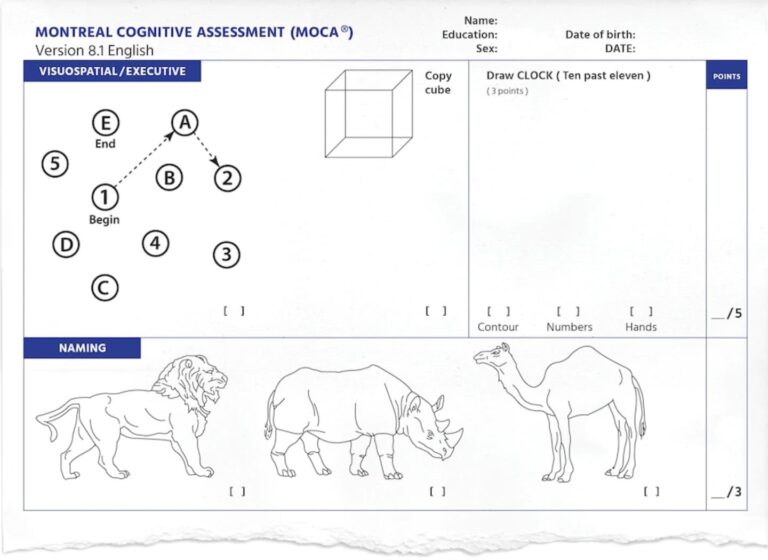Sen. Lindsey Graham of South Carolina and Rep. Adam Schiff of California said Sunday that both Biden and Trump should undergo cognitive testing.
like that Although testing provides some useful information, it also has limitations.
“People need to understand that cognitive ability is not one ability. It’s actually a constellation of different abilities,” said Charan Ranganath, a psychology professor at the University of California, Davis. Asked about requiring public officeholders to take cognitive ability tests, Ranganath said, “It’s quite likely, or probably likely, that we won’t get a clear answer here. Tests will be much less informative than the ability to function in the real world.”
A range of brief cognitive tests exist that take just a few minutes to answer simple questions and perform basic tasks such as copying shapes. Preliminary testing does not involve MRIs or other brain scans.
The MiniCog is one of the easiest tests, testing cognitive functions such as memory by repeating three words, drawing a clock, and then recalling the three words.
The Montreal Cognitive Assessment (MoCA) is one of the best-known tests, the one Trump took, in which patients may be asked to repeat phrases such as “The cat always hid under the sofa when the dog was in the room” or name pictures of animals.
If patients score poorly on these preliminary tests, they may be referred for more extensive neurocognitive testing, such as the Cambridge Automated Neuropsychological Test Battery, which includes 25 computerized cognitive tasks, such as: Identify the emotions associated with facial expressions and recall which patterns appeared in a series of boxes.
People often “put too much faith in one test,” says Ishani Ganguly, a primary care physician and assistant professor of medicine at Harvard Medical School. In reality, doctors often combine cognitive test results with other information, such as family descriptions of a patient’s behavior or brain MRIs, to make a diagnosis.
Who should take cognitive tests?
There is controversy over whether older people should undergo cognitive testing during routine health checks or only if they already show signs of cognitive decline.
An extensive research review by the U.S. Preventive Task Force, which influences how health care providers and insurers treat the testing, concluded that there is insufficient evidence to recommend that all adults 65 and older get cognitive testing. No symptoms Cognitive ability declines, but the American Academy of Neurology recommends annual cognitive testing for everyone in this age group, which it says is key to recognizing mild impairment.
According to the Cleveland Clinic, symptoms of mental decline include forgetfulness, difficulty concentrating or processing information, repeating questions and having trouble pronouncing desired words.
Medical experts previously told The Washington Post: Biden and Trump’s verbal stumbles, such as confusing proper nouns or difficulty remembering words, may simply be the normal functioning of an aging brain and not an indication of more serious problems such as dementia or other cognitive decline.
“I’m not so much worried about word-finding problems,” says Earl K. Miller, a professor of neuroscience at the Massachusetts Institute of Technology, “but more worried about long-winded, disorganized speech that’s out of touch with reality.”
Still, Ziad Nasreddine, the Canadian neurologist who developed the MoCA test, and three former White House medical employees said Biden’s awkward behavior suggests he should undergo cognitive testing.
What the results don’t show
The MoCA test is designed to assess short-term memory, visuospatial abilities, executive function, language, and orientation. The test can be used to rule out impairments associated with Alzheimer’s disease, stroke, and other diseases. This test is not a psychological test and cannot rule out underlying mental health issues such as depression or narcissistic personality disorder.
During his first campaign for reelection, Trump bragged about how well he did on the test and challenged Biden to take it, inaccurately describing the assessment as an intelligence test and misrepresenting the types of questions asked.
According to the Cleveland Clinic, very low scores on cognitive tests usually indicate some kind of brain disorder, but higher scores don’t necessarily mean there’s no disorder — the results can’t explain what or why someone is impaired.
“They’re not exhaustive. They’re helpful, but they don’t give you all the information you need to take the next step,” said Courtney Marshall, an assistant professor of neuroscience at Wellesley College.

